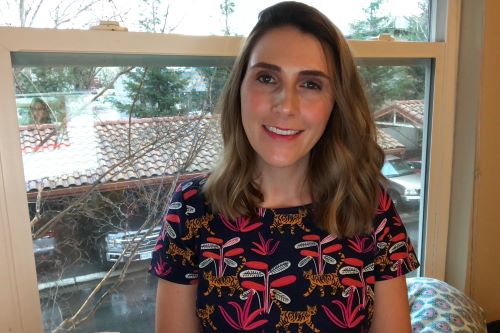Postdoctoral Scholar Mikahl Banwarth-Kuhn was awarded a $205,140 National Institutes of Health Ruth L. Kirschstein Postdoctoral Individual National Research Service Award (NIH-F32) to be distributed over three years.
The purpose of the fellowship is to enhance the research training of postdoctoral candidates who have the potential to become productive, independent investigators in scientific health-related research fields.
For her postdoctoral research, Banwarth-Kuhn is working with UC Merced Applied Mathematics Professor Suzanne Sindi and Tricia Serio, dean of the College of Natural Sciences at the University of Massachusetts Amherst.
“I am thrilled for what this means for Mikahl's research program,” Sindi said. “Mathematical biology is a tough area to receive funding for because you lie between two different fields. The fact that Mikahl received an F32 for a fully computational research program speaks to the strength of her research and the potential impact it will have on understanding proteostasis.”

The Albuquerque native, whose application scored in the top four percentile, is using math to study prion diseases in yeast. Prions are responsible for a host of fatal, neurodegenerative diseases that affect both humans and animals, most notably bovine spongiform encephalopathy (mad cow disease), fatal familial insomnia and Creutzfeldt-Jakob disease.
Banwarth-Kuhn is developing novel multi-scale mathematical models to be used in combination with experimental studies in yeast to determine mechanisms driving emergent patterns of phenotypes associated with protein misfolding to reveal the unique set of conditions leading to clearance of misfolded proteins.
“Mikahl’s work will be incredibly impactful in the field of prion biology because it will provide a pathway for us to advance the field beyond the limits of our intuition,” Serio said. “Mikahl’s talent at the intersection of biology and mathematics opens new doors to mechanistic understanding into an incredibly complex and nuanced area of biology with direct implications for human health.”
This fellowship will allow her more time to gain research experience.
“This award means that I have funding to focus on research for three years and it gives me the opportunity to develop an independent research program that I can bring with me to my future position,” Banwarth-Kuhn said.
Her career goal is to become a professor with a joint appointment in mathematics and biology, bioengineering or medicine.
“I have come to understand how important it is that every place of learning is an environment that encourages and provides an equal chance for the success of every participant,” she said.
Banwarth-Kuhn said math classes often create a hurdle for students on their chosen degree path.
“I want to be part of the movement to correct this grave injustice by changing the culture of math and science,” she said. “I see the role of a math teacher as delivering content and competency-based training via multidisciplinary educational and research experiences that serve to prepare the next generation STEM workforce in solving global challenges.”



